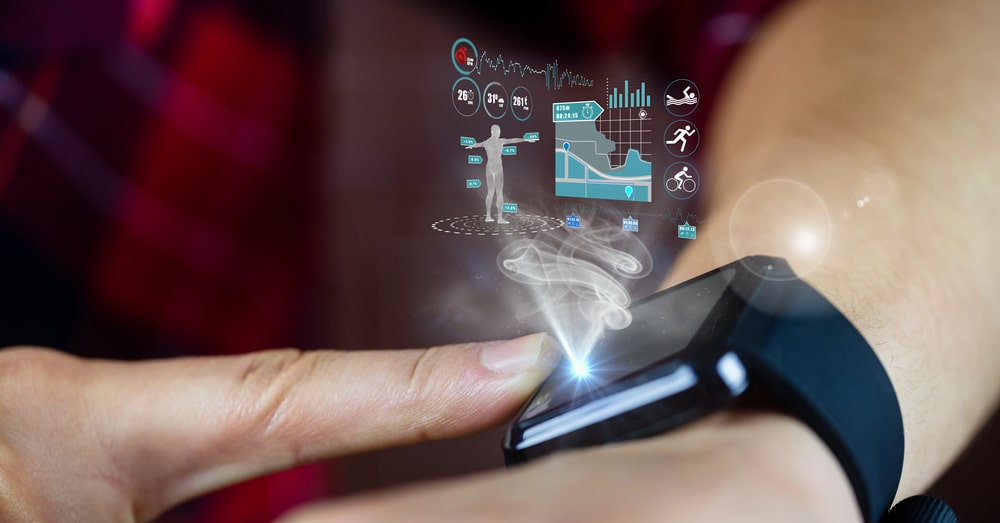 From your heartbeat to your sleep cycle, smart wearables now give you real-time health insights that once required a doctor’s office.
From your heartbeat to your sleep cycle, smart wearables now give you real-time health insights that once required a doctor’s office.
These devices go far beyond fitness—they’re changing how people everywhere manage their health. In this article, we’ll break down what wearable health technology is, highlight the most common types of devices, explain their benefits and limitations, and look ahead at how they’re transforming the future of personal care.
What Is Wearable Health Technology?
Wearable health technology refers to electronic devices worn on the body that collect health-related data. Unlike traditional medical tools, these devices are designed for continuous use, offering real-time feedback.
They range from fitness trackers and smartwatches to medical-grade monitors that help people manage chronic conditions. The goal is simple: make health information accessible, personal, and actionable.
Popular Types of Wearable Health Devices
1. Fitness Trackers and Smartwatches
Devices like Fitbit or Apple Watch track daily steps, heart rate, calories burned, and sleep quality. Many now include reminders to stand, stretch, or take a deep breath—encouraging healthier habits throughout the day.
2. Continuous Glucose Monitors (CGMs)
For people with diabetes or prediabetes, CGMs provide 24/7 monitoring of blood sugar levels without constant finger pricks. This helps users spot patterns and make better dietary or lifestyle decisions.
3. Heart Monitors and ECG Devices
Some smartwatches and specialized wearables can record an electrocardiogram (ECG) or detect irregular heart rhythms. This empowers users to seek medical attention sooner if something seems off.
4. Advanced Innovations
New wearables go beyond basics, measuring oxygen levels, stress, and even hydration. As technology improves, these devices are becoming more accurate and user-friendly.
Benefits of Wearable Health Tech
Wearables aren’t just gadgets—they’re tools that support better health:
- Encourages proactive habits: Real-time data helps people move more, sleep better, and pay attention to wellness.
- Supports chronic condition management: Devices like CGMs and heart monitors provide valuable information between doctor visits.
- Boosts awareness and engagement: When people can see their health data daily, they often feel more motivated to make positive changes.
- Complements medical care: Data collected over time can be shared with healthcare providers to inform treatment and preventive strategies.
Limitations and Considerations
While wearable health tech offers exciting opportunities, it’s not perfect.
- Accuracy can vary: Consumer-grade devices may not be as precise as clinical tools.
- Not a replacement for doctors: Wearables provide insights but should be paired with professional medical advice.
- Privacy concerns: Data security and how information is stored or shared should be considered.
- User interpretation: Numbers alone don’t tell the whole story—context from a healthcare provider is essential.
The Future of Personal Care with Wearables
Wearable health technology continues to evolve quickly. In the near future, these devices will integrate more seamlessly with telemedicine platforms and electronic health records, giving providers better insights into daily health trends. With the rise of artificial intelligence, wearables may even predict potential health issues before symptoms appear. For patients, this means more personalized, preventive care—and greater control over their wellbeing.
FAQs About Wearable Health Tech
Are wearable devices accurate enough for medical use?
Some devices, like CGMs and FDA-approved monitors, are highly accurate. Fitness trackers may vary but still provide helpful lifestyle data.
Do doctors actually use data from fitness trackers?
Yes, many healthcare providers review wearable data to support care, especially for heart health, diabetes, and weight management.
Are wearables worth the investment?
For many, the daily motivation and insights are valuable. If you’re managing a condition or focused on wellness, they can be a worthwhile tool.
Technology as a Partner in Better Health
Wearable health technology is making it easier than ever to stay connected to your body’s needs. From tracking steps to monitoring chronic conditions, these devices empower people to make informed choices about their health. Still, they work best when paired with regular medical care and professional guidance.
At Navarro Medical, we encourage patients to use tools like wearables as part of a bigger picture—one that includes preventive checkups, lifestyle support, and personalized care. Together, technology and healthcare can help you live healthier, longer, and with more confidence.